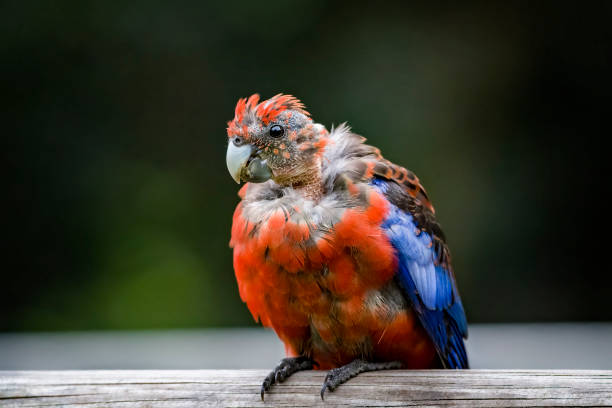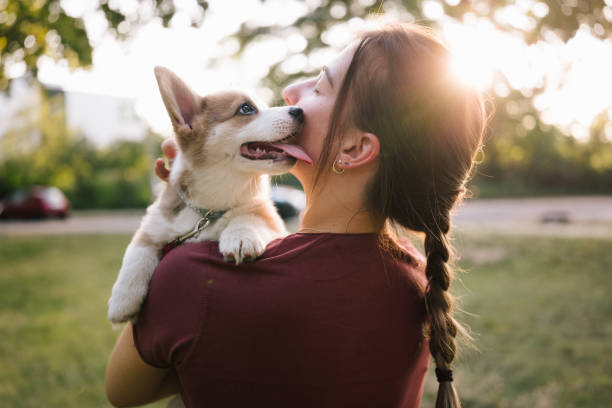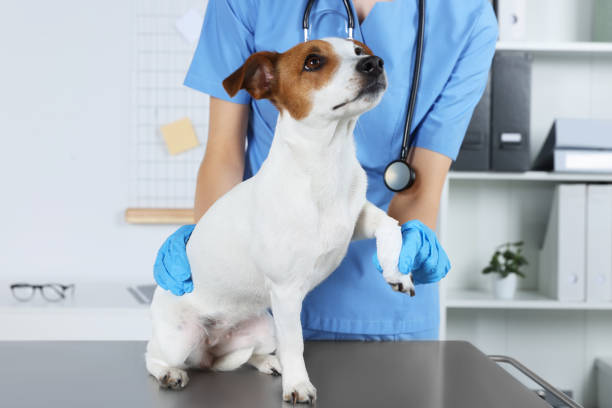How to Tell If My Pet Bird Is Sick: Warning Signs Every Owner Should Know
A healthy bird is full of energy, curious, and alert. But spotting a sick one isn’t always easy. If you’ve ever wondered how to tell if bird is sick, the truth is that birds are masters at hiding pain or weakness. It’s part of how they protect themselves in the wild. The Association of Avian Veterinarians explains why birds hide illness symptoms as a survival mechanism. That’s why small changes in behavior or eating habits can be your first clue that something isn’t right.
Even tiny signs, like sitting quietly for too long or breathing differently, could be early signs of trouble. A bird might not cry out or show obvious symptoms the way other pets do, so learning to notice subtle changes matters a lot. Things like drooping wings, strange sounds, or a shift in appetite can point to serious problems if left unchecked.
Spotting bird illness symptoms early can make a huge difference. Whether it’s a common cold, breathing problems, or more serious parrot health problems, quick attention helps avoid bigger issues later. The American Veterinary Medical Association provides guidelines on recognizing pet illness. It’s also easier to help your bird if you already know what’s normal for them. Paying attention now means you won’t be caught off guard in a real emergency. In this post, you’ll learn what warning signs to look for and what steps to take.
Physical Bird Illness Symptoms to Watch For
It’s easy to miss when a bird is sick, especially at the early stage. But your bird’s body often shows quiet signs before things get worse. Paying attention to changes in how they look or move can help you act fast and avoid bigger problems.
Feather and Appearance Changes
Feathers are more than just for flying or looking pretty. They reflect your bird’s overall health. Watch out for these:
- Ruffled or fluffed feathers even when the room isn’t cold can mean your bird is feeling weak or uncomfortable
- Feather loss or strange feather growth might point to stress, illness, or even parrot health problems
- Dull or discolored feathers are often linked to poor diet or internal issues. VCA Animal Hospitals explains how feather condition reflects bird health.
- Lack of powder down (the soft white dust) can be a sign that your bird’s skin or feathers aren’t healthy
- Beak growths or odd shape changes could signal deeper health problems or infection
- Eye discharge or unusual look in the eyes like cloudiness or swelling may need quick avian veterinary care. The Merck Veterinary Manual details common eye problems in birds.
Posture and Movement Issues
How your bird stands or moves tells a lot about how it’s feeling. Keep an eye out for these signs:
- Sitting at the bottom of the cage instead of perching can be a quiet cry for help
- Wings or tail hanging loosely may point to fatigue or pain
- Head tilting or twisted neck could be signs of balance or nerve issues
- Shaky movement or trouble balancing often show up in bird illness symptoms
- Limping or favoring a leg or wing might mean injury or something deeper
If you notice these sick bird behavior changes, it’s not just “a bad day.” These can be early bird emergency signs. Quick support, even basic bird first aid basics, can make a huge difference. If anything feels off, don’t wait. A small change in bird eating habits sick birds often show could be the clue you need. Learn more about emergency bird care from the Association of Avian Veterinarians.
Sick Bird Behavior Changes That Signal Health Problems
Watching how your bird acts every day can tell you more than any test. A bird that’s not feeling well will often behave differently, even before showing any clear physical signs. Noticing these early changes can help you catch health problems before they get worse.
Activity Level Changes
Birds are usually lively, curious, and full of energy. When that changes, it’s often a quiet sign that something’s wrong. Look out for:
- Lethargy and unusual fatigue where your bird seems tired even after resting
- Staying inside the nest or cage all day instead of exploring or playing
- Being less vocal or suddenly stopping their usual chirping or singing
- Hiding or staying away from you or other pets more than usual
- Not showing interest in family interaction even during regular bonding times
These sick bird behavior changes are often early signs of something deeper, especially if they appear along with bird eating habits sick birds tend to show.
Sleeping Pattern Changes
Sleep can tell a lot about your bird’s health. Small shifts can signal bird illness symptoms that shouldn’t be ignored. Watch for:
- Sleeping too much during the day, especially if your bird is usually active
- Sleeping with both feet on the perch, instead of resting on one foot
- Tucking the head under the wing for too long during daylight hours
- Acting restless or unable to settle at night, which could be linked to bird breathing problems
These signs may not seem serious at first, but they can be early bird emergency signs. It helps to be familiar with what’s normal for your bird so that anything unusual stands out quickly. If things don’t improve, getting avian veterinary care and learning basic bird first aid basics can prevent bigger problems. Even with parrot health problems, spotting issues early gives your bird a better chance of recovery.
Bird Eating Habits When Sick: Appetite and Drinking Changes
Food and water habits can change fast when a bird is unwell. What looks like a picky moment might be a sign of something deeper. Watching how your bird eats and drinks is one of the easiest ways to spot early bird illness symptoms. It’s even more important if paired with other sick bird behavior changes.
Appetite Problems
A healthy bird usually eats with interest and sticks to its usual routine. When that changes, it’s often worth paying close attention. These signs can point to health concerns:
- Refusing food completely, even treats or favorite meals
- Eating less than normal, picking at food or leaving most of it untouched
- Losing weight even though they seem to be eating, which could signal digestion problems
- Struggling to eat or swallow, with food falling from the beak
- Spitting food back out in a way that isn’t part of normal courtship behavior. PetMD explains normal vs. abnormal regurgitation in birds.
Issues like this could lead to bigger parrot health problems if left alone. If you notice any of these signs, don’t wait too long.
Drinking Behavior
Water habits are just as important and often overlooked. Look out for:
- Drinking more water than usual, which could point to kidney or liver issues
- Drinking much less, which can quickly lead to dehydration. Understanding proper hydration for birds is crucial, as explained by avian veterinarians.
- Sitting close to the water bowl often, even without drinking
These could be early bird emergency signs. If you spot these along with bird breathing problems or weakness, it’s best to reach out for avian veterinary care right away. Learning bird first aid basics also helps you manage situations like this until you get proper help.
Digestive System Warning Signs in Sick Birds
A bird’s digestive system gives off early signs when things aren’t right. You don’t have to be a vet to notice them. A close look at droppings and body changes can help you figure out how to tell if bird is sick before the condition becomes serious. Digestive issues are common in parrots and other pet birds, and often show up in small but clear ways.
Droppings Changes
Checking your bird’s droppings daily may not sound fun, but it’s one of the easiest ways to catch health problems early. Look out for:
- Watery or loose droppings, which may point to infection, stress, or poor diet
- Unusual colors like green, yellow, or red, which could suggest liver trouble or internal bleeding
- More urine in the droppings than normal, often linked to kidney issues
- No droppings for long periods, which may mean a blockage or serious constipation
- Changes in texture or how often they go, which are common bird illness symptoms. The Association of Avian Veterinarians provides a detailed guide to bird droppings and what they indicate about health.
Digestive Distress
Besides droppings, watch your bird’s body and behavior for signs of belly trouble:
- Throwing up food, not just the normal gentle regurgitation
- A swollen or firm belly, which may signal infection or organ issues
- Straining to poop, which could lead to bird emergency signs if ignored
These issues can also show up alongside bird eating habits sick birds often show, like refusing food. Acting early with avian veterinary care and learning basic bird first aid basics can make a real difference. Digestive trouble may seem small at first, but it often connects to bigger parrot health problems.
Bird Breathing Problems: Respiratory Illness Symptoms
Breathing trouble in birds should never be ignored. Their respiratory system is very delicate, and even small problems can turn serious quickly. If you’re trying to figure out how to tell if bird is sick, the way it breathes is one of the first things you should check. Birds don’t have lungs like humans. Their breathing is quiet and smooth, so any change stands out if you know what to look for.
Breathing Difficulties
You don’t need special tools to spot breathing problems. Just pay close attention to how your bird looks and sounds when at rest. Watch for:
- Heavy or labored breathing, even while sitting still
- Breathing with an open mouth, especially while not active
- Tail bobbing up and down, a sign the bird is working harder to breathe
- Wheezing, clicking, or hissing sounds that aren’t normal. VCA Animal Hospitals explains respiratory diseases in birds and their warning signs.
- Frequent sneezing or coughing, which could signal infection
These are more than bird illness symptoms. They can be bird emergency signs, especially when paired with sick bird behavior changes like tiredness or staying still too long.
Nasal and Respiratory Discharge
Respiratory infections often show in the nose and voice. Keep an eye out for:
- Runny or wet-looking nostrils, which are not normal
- Crust forming around the nose, making it harder to breathe
- Blocked or noisy nose breathing, which may affect airflow
- Sudden changes in voice or complete loss, which can point to parrot health problems. Learn about voice changes in birds from the Merck Veterinary Manual.
Bird breathing problems often come with changes in energy, appetite, and even droppings. If you see more than one issue at a time, it’s best to reach out for avian veterinary care. Even if you know bird first aid basics, quick help makes all the difference. Watching for these early signs can prevent a simple cold from turning into something life-threatening.
Bird Emergency Signs Requiring Immediate Avian Veterinary Care
Some signs mean you can’t wait or watch for a few days. These aren’t mild changes or just part of aging. These are serious red flags that your bird needs urgent help. If you’re trying to figure out how to tell if bird is sick, and you see any of the signs below, it’s best to treat it as an emergency.
Critical Symptoms
These symptoms show something serious is going on. Waiting could cost your bird its life. Look out for:
- Struggling to breathe or gasping for air, even when not moving
- Bleeding anywhere on the body, especially if it doesn’t stop quickly
- Visible injury or trauma, such as broken wings or falling from a height
- Shaking, twitching, or seizures, which often point to nerve or brain problems
- Falling over, collapsing, or not being able to stand, which is never normal
- Being extremely weak or unconscious, not responding to noise or touch
These are strong bird emergency signs. They may come along with earlier bird illness symptoms that were missed, such as low energy or odd posture.
Poisoning Signs
Toxins can affect birds very fast. If your bird was near any fumes, sprays, or new items, stay alert for:
- Sudden shaking, balance loss, or confusion
- Breathing problems after being near smoke, cleaning products, or non-stick pans
- Other birds in the same cage dying without warning, which may suggest poison
Even if the signs feel mild at first, poisoning often gets worse quickly. Acting fast with proper avian veterinary care can save your bird. Learning bird first aid basics can also help you stay calm in the moment. Parrot health problems can turn dangerous fast, especially when bird breathing problems or sick bird behavior changes are already showing. Trust your gut. If your bird doesn’t seem right, it’s always safer to call for help. The ASPCA provides emergency care guidelines for birds.
Common Bird Health Problems
Birds can face a range of health problems, and the sooner you spot the signs, the better chance you have to help them recover. If you’re trying to figure out how to tell if bird is sick, knowing the types of illnesses out there can guide you in the right direction. Some are caused by viruses, others by bacteria or parasites. Each comes with its own symptoms, and spotting them early can save your bird from serious trouble.
Viral Infections
- Psittacine Beak and Feather Disease (PBFD): This mostly affects parrots and shows through feather loss, beak damage, and slow changes in appearance. It’s often seen in younger birds and can weaken their immune system. Learn more about PBFD from the Association of Avian Veterinarians.
- Polyomavirus: Polyomavirus can spread quickly among young birds and often causes a swollen belly, weakness, or sudden death. Symptoms may seem light at first but get worse over time. The Association of Avian Veterinarians has detailed information on polyomavirus and prevention.
Bacterial Infections
Respiratory infections often lead to sneezing, coughing, or bird breathing problems. Digestive tract infections may cause diarrhea or poor appetite, adding to bird eating habits sick birds show. Skin and feather infections can lead to itching, swelling, and patchy feathers.
Parasitic Issues
External parasites, like mites and lice, can make birds scratch nonstop or pluck feathers.
Internal parasites may cause weight loss, tiredness, or strange droppings. These bird illness symptoms often appear slowly but shouldn’t be ignored.
If any of these signs show up, avian veterinary care and basic bird first aid basics can help prevent bird emergency signs later.
Preventive Care and Monitoring for Birds
Keeping your bird healthy starts with watching the little things every day. It’s not just about feeding or cleaning, but also about noticing small changes in how your bird looks, acts, and moves. These moments can help you spot early signs before they turn into bird illness symptoms.
Daily Health Checks
While spending time with your bird each day, quietly observe how it eats, perches, breathes, and reacts to you. Small shifts, like eating less or being quieter than normal, can be early clues. Try to learn what “normal” looks like for your bird. That includes how it sleeps, how much it talks, and how its feathers usually look. You can even jot down short notes in a simple logbook or app. It helps you track any sick bird behavior changes or unusual patterns over time.
Environmental Factors
A clean, stable space helps prevent many health issues. Offer fresh, balanced food to avoid bird eating habits sick birds often show. Make sure the cage is cleaned regularly and kept dry to avoid mold and bacteria. Keep the room at a steady temperature and avoid sudden drafts or extreme heat. High or low humidity can lead to bird breathing problems, especially in smaller birds or those with feathers already damaged from parrot health problems.
A quiet, low-stress space also helps your bird stay calm. Birds that feel safe get sick less often. With the right care and support from avian veterinary care when needed, you reduce the risk of bird emergency signs. Keeping an eye on things daily is one of the best forms of bird first aid basics.
When to Contact an Avian Veterinarian
Not every bird vet is the same. Birds need care from someone who truly understands them. A general vet might miss early bird illness symptoms, while an avian specialist is trained to spot things most people overlook. If you ever feel unsure about how to tell if bird is sick, it’s always safer to call a vet who works with birds regularly.
Finding the Right Veterinarian
An avian vet knows how to handle birds gently and run the right tests. Before choosing one, ask questions like: Do they see birds often? What do they check during visits? Do they offer emergency support? It’s also smart to have their contact saved ahead of time so you’re not rushing during bird emergency signs. Find certified avian veterinarians through the Association of Avian Veterinarians directory. Ask what to do in case of poisoning, trauma, or parrot health problems. Some clinics even share basic bird first aid basics if you ask.
What to Expect During a Vet Visit
Bring notes about your bird’s eating habits, droppings, behavior, and any sick bird behavior changes you’ve noticed. Clear pictures or videos can help too. The vet may run tests like poop checks, blood work, or imaging if needed. Understanding what to expect during an avian vet visit can help you prepare. Treatments depend on the cause but may include fluids, medications, or support for bird breathing problems.
Getting help from the right avian veterinary care can make all the difference when something feels off. Early support helps your bird recover faster and avoids bigger problems later.
First Aid Basics for Birds
Knowing a few simple steps can help keep your bird stable before seeing a vet. If you’re trying to figure out how to tell if bird is sick and you spot bird illness symptoms, gentle handling matters more than anything.
Safe Handling of Sick Birds
Move your bird calmly using a towel or soft cloth. Place it in a small, well-ventilated box or travel cage with soft padding. Keep the space quiet and warm. You can turn a regular cage into a hospital setup by removing perches and placing soft towels at the bottom. Use a heat source nearby (not inside the cage) to keep the area warm but not too hot. This helps comfort your bird and supports healing, especially in cases involving bird breathing problems or parrot health problems. The Association of Avian Veterinarians provides first aid guidelines for birds.
What NOT to Do
- Don’t force food or water if the bird is too weak
- Avoid loud sounds or overhandling, especially with sick bird behavior changes
- Don’t try home cures like oils or herbs not made for birds
- Never delay vet help during bird emergency signs
Trying bird first aid basics can help, but proper avian veterinary care gives your bird the best chance. Birds hide problems well, so any sign of bird eating habits sick or physical distress should be taken seriously.
Specific Symptoms by Bird Species
Different bird types show illness in different ways. Knowing what’s normal for each kind helps you catch changes early. If you’re wondering how to tell if bird is sick, looking at symptoms based on species gives clearer answers.
Parrots and Cockatoos
Larger birds like parrots and cockatoos often show signs through mood swings or plucking feathers. If your parrot starts biting more, hiding, or showing less interest in people, those could be sick bird behavior changes. Parrot health problems may also show through vocal changes, vomiting, or swollen eyes. Watch for weight loss even when eating. These birds may also get liver issues, so odd-colored droppings are worth checking.
Finches and Canaries
Smaller birds like finches and canaries often get overlooked because they’re quiet and gentle. Sleeping too much, puffing up feathers all day, or avoiding food can point to bird illness symptoms. If droppings change color or if breathing gets heavy, those may be early signs. Because they’re small, bird breathing problems in these species can turn serious fast.
Cockatiels and Lovebirds
Medium-sized birds like cockatiels and lovebirds tend to hide illness well. Watch for sneezing, wet nostrils, or less interest in treats. Some may get growths around the face or odd beak shapes. These may lead to bird emergency signs if left untreated.
If you notice anything strange in eating, behavior, or breathing, bird first aid basics can help at the start, but avian veterinary care is still the best next step.
Common Questions About Bird Illness Symptoms
Q1: How quickly can a bird become seriously ill?
A: Birds can deteriorate rapidly due to their high metabolism and natural instinct to hide illness. What appears as mild symptoms in the morning can become life-threatening by evening. This is why any change in behavior or appearance should be taken seriously and monitored closely.
Q2: Why do birds hide their illness symptoms?
A: In the wild, showing weakness makes birds vulnerable to predators and can result in being abandoned by their flock. This survival instinct remains strong in pet birds, so they will often appear normal until they’re too sick to hide their symptoms anymore.
Q3: What’s the difference between normal and abnormal bird droppings?
A: Normal bird droppings have three parts: solid feces (brown/green), urates (white/cream), and urine (clear liquid). Abnormal signs include: all-liquid droppings, blood, unusual colors (bright green, yellow, black), or complete absence of droppings for more than 12 hours.
Q4: Can I treat my bird’s illness at home?
A: No, birds should always be evaluated by an avian veterinarian for any illness symptoms. Their physiology is very different from mammals, and what seems like a minor issue can be life-threatening. Home treatments can often make conditions worse or mask serious underlying problems.
Q5: How often should I monitor my bird for illness symptoms?
A: You should observe your bird daily during normal interactions. Look for changes in appetite, droppings, behavior, and appearance each day. Weekly weigh-ins can help detect weight loss early. Any deviation from your bird’s normal patterns should be noted and monitored closely. Daily health monitoring tips from the Association of Avian Veterinarians can help you track changes.
Conclusion
Every bird owner should be ready before trouble starts. Keeping a few essential items nearby can make a big difference. A thermometer helps you watch room temperature. A heating pad or lamp offers warmth in cold moments. Small towels can help you handle your bird gently. Keep emergency contact info in one place and only use basic medications your vet has approved.
Emergency preparedness matters too. Have a simple plan in case your bird gets sick suddenly. Arrange for backup care if you’re away and know the closest emergency avian clinic before you ever need it.
In summary, watch for warning signs like tiredness, odd breathing, or changes in droppings or eating. Regular vet visits are still the best way to avoid bird illness symptoms and catch problems early. If something feels off, don’t wait. Your instincts matter. For more support, keep trusted avian veterinary care contacts handy and ask your vet for helpful bird first aid basics.






